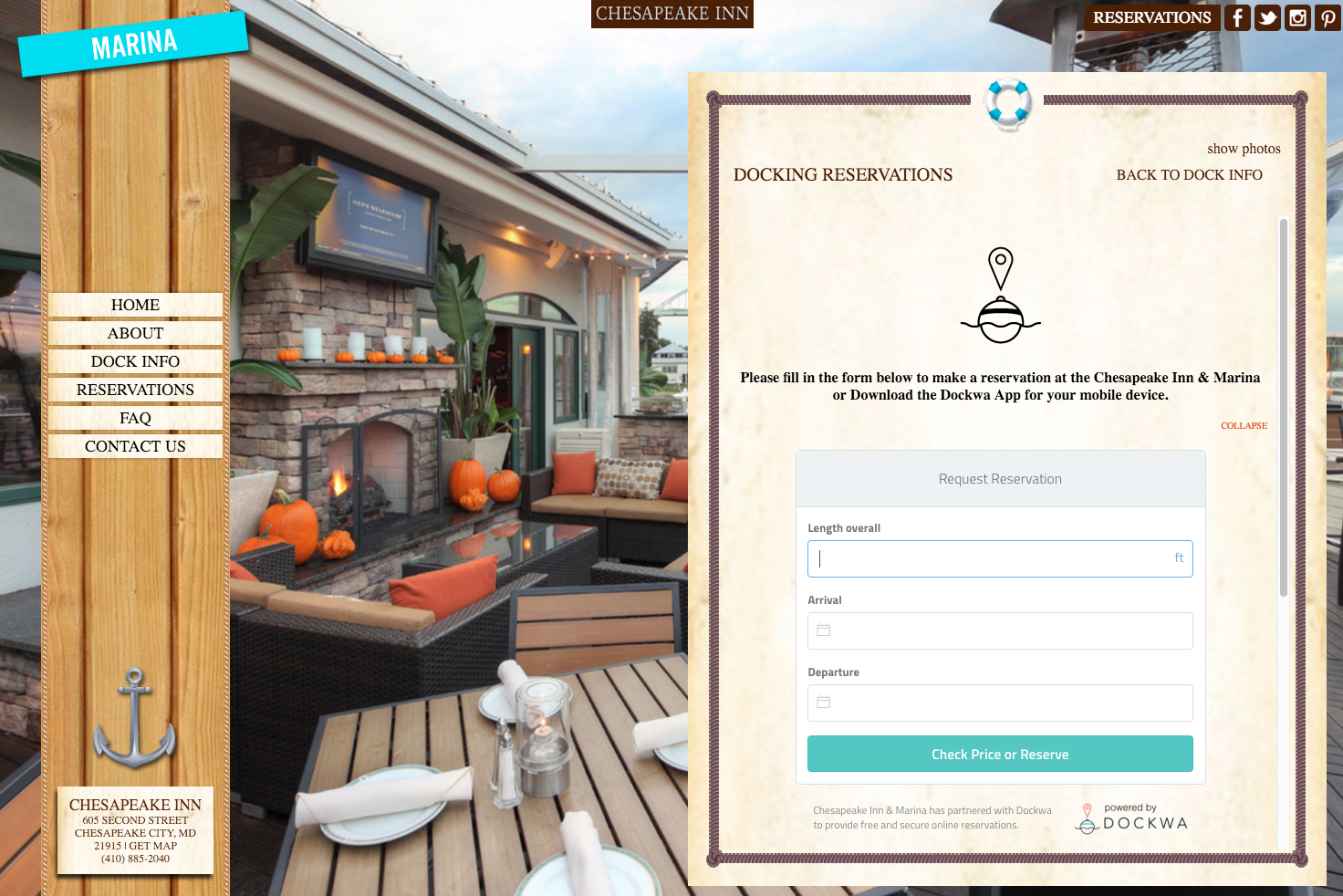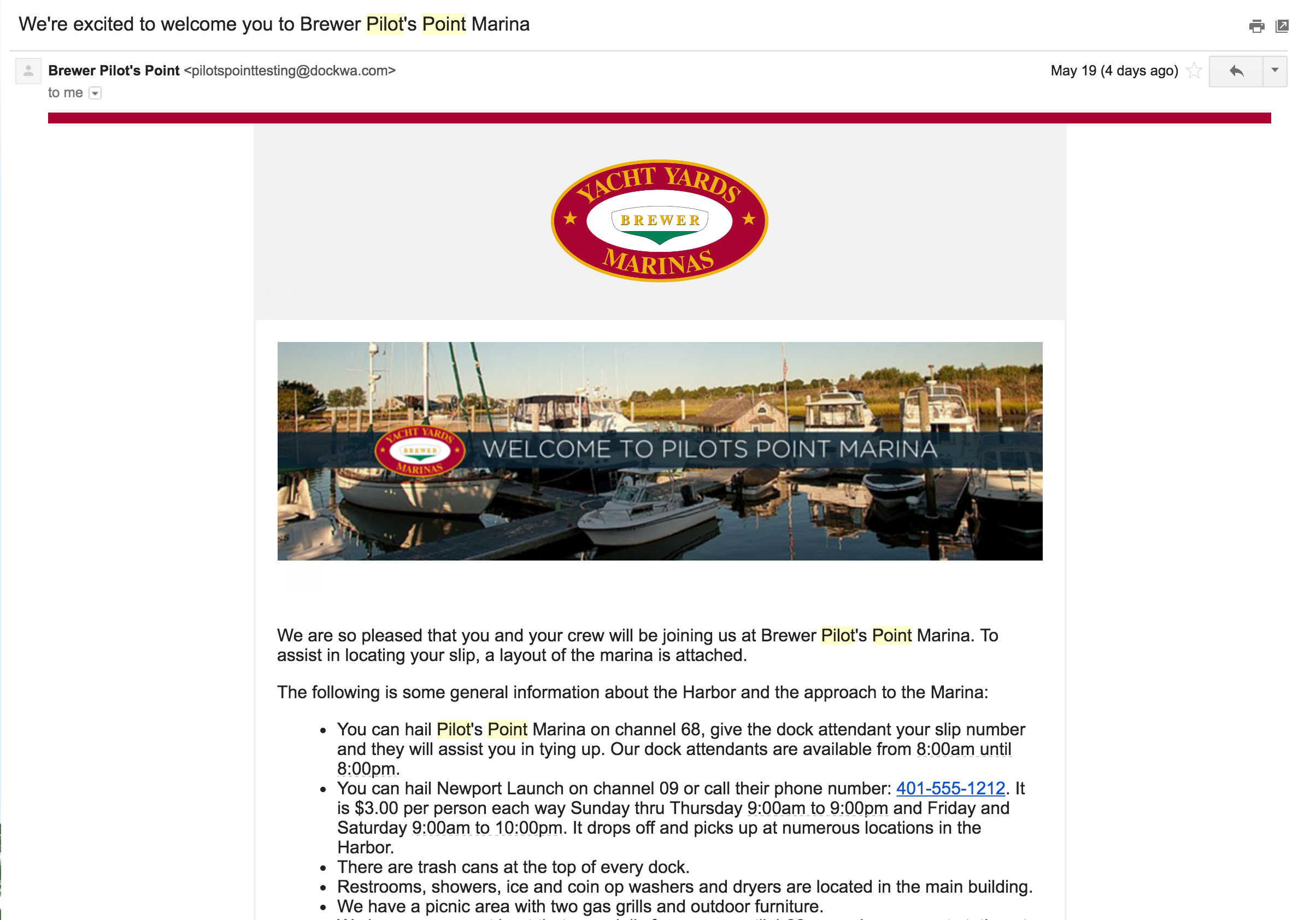Think Your Boater Don't Want to Reserve Slips and Moorings Online? Think Again.
Thanks to the ever-evolving world of technology, it seems that we are never very far away from a computer, not to mention our smartphones, which...
4 min read
 Lauren from Dockwa
:
11/25/25 12:00 AM
Lauren from Dockwa
:
11/25/25 12:00 AM
.png)
At the end of every year, Dockwa and Marinas.com celebrate the marinas that boaters love most through the Boaters’ Choice Awards — a recognition program built entirely on boater reviews. These awards highlight the best marinas across the country not because they’re the biggest or the fanciest, but because their teams consistently deliver exceptional service, memorable experiences, and genuine hospitality.
.png?width=1688&height=462&name=Web%20image%20updates%20%20(15).png)
Behind every winning marina is the same foundation: a strong feedback loop with their boaters. Whether praise or critique, reviews have become one of the most powerful mechanisms for marinas to understand their customers, refine their operations, and stand out in a competitive market.
As we prepare to announce the winners of the 2025 Boaters’ Choice Awards, now is the perfect time to revisit why reviews matter — and how your marina can use them to build stronger relationships while fueling long-term business growth. Below is your guide to making the most of boater reviews and turning feedback into a strategic advantage.
The most successful marinas don’t wait until the end of the year to ask for feedback. They gather reviews continuously, creating an always-on snapshot of the boater experience.
A consistent stream of reviews builds credibility and trust
Prospective boaters look at recent reviews first
A larger sample size protects against skewed impressions
Feedback keeps you honest and helps identify opportunity areas early
Oftentimes, your most "average" (happy) customer is not inclined to leave reviews if the avenue to do so isn't obvious. However, those whose experience did not match their expectations are inclined to. That's why, when you don't make efforts to gather reviews from all of your boaters, your online ratings can be skewed downward by a small sample of individuals that don't reflect the most common experience at your marina. To mitigate this risk, make it easy and obvious for all of your customers to leave you a review.
.png?width=287&height=287&name=The%20Running%20Fix%20Story%20Images%20(46).png)
Encourage guests at checkout to leave a quick note on Marinas.com
Display “Review Us” cards at the fuel dock or office counter linked to your marinas.com profile
Include a review link on your website, receipt and/or departure email
Ask your staff to request feedback at natural service touch points
Every boater who books a reservation through Dockwa automatically receives a review prompt to leave a review after checkout, ensuring marina partners get a steady flow of verified, high-quality feedback. Remember, add Dockwa’s “Book Now” button or booking form to your website to maximize this reach.
96% of consumers use online reviews to inform their decisions — proving that a strong review presence influences nearly every potential customer.
Source: BrightLocal Local Consumer Review Survey
Reviews live in more places than most marina teams realize. To truly understand your reputation (and your opportunities) it's important to see the full picture.
Common websites where your marina is likely collecting reviews include:-1.png?width=498&height=214&name=Web%20image%20updates%20%20(16)-1.png)
Claim your listings on each platform and enable notifications so you never miss new feedback. The goal isn’t just to see the reviews, it’s to learn from them. Reading them in aggregate will show service patterns, consistency across staff, expected amenities vs. perceived value, issues that come up often, what boaters rave about most.
This is your direct line into what matters most to your customers.
74% of consumers check two or more review platforms before choosing a business — underscoring the importance of maintaining consistent reputation across Marinas.com, Google, and Dockwa.
Source: BrightLocal Local Consumer Review Survey
Reading your marina's reviews on its own won't help you grow your business. It's important that you actively consider how to incorporate the feedback in each review into future customer interactions or business operations.
These highlight what you’re doing right! And also what you should double down on.
Ask yourself:
Is there an employee who deserves recognition?
Is an amenity outperforming expectations?
Is there a unique service style or hospitality moment worth replicating?
Positive reviews offer your blueprint for differentiation.
Not all negative feedback is created equal, but every negative review offers a chance to improve.
Two outcomes are common:
You agree with the criticism.
Take accountability.
Diagnose the cause.
Adjust your processes accordingly.
You disagree with the criticism.
This is still an opportunity.
Train your staff on how to handle similar situations.
Build contingency plans for difficult or emotional interactions.
In both cases, the goal is to turn a negative moment into a loyal returning customer. That is something many award-winning marinas excel at.
Moral of the story:
Always consider how you can learn from feedback, positive or negative, and what steps you can take, however small, to steer your operation toward the positive and away from the negative. Discuss reviews with your team. Share real examples during staff meetings. Let patterns guide training and service rituals.
Responding to reviews — both positive and negative — is one of the clearest signals of professionalism and care.
They show appreciation for happy customers
They demonstrate accountability in difficult situations
They reassure future boaters that you listen, respond, and improve
They humanize your marina
A thoughtful response can have enormous impact:
For the reviewer → validation and gratitude
For potential customers → reassurance and trust
For your own operations → a public record of continuous improvement
When appropriate, outline clear next steps or actions you’ve taken. This shows boaters that their feedback has a meaningful effect.
The Boaters’ Choice Awards are fueled entirely by real, verified feedback from the boaters who stay with you. No committees, politics, or paid placement. Those reviews shape your reputation, influence booking decisions, drive visibility during peak planning season, and determine how prominently your marina appears across Marinas.com and Dockwa. They’re often the deciding factor between being discovered… or overlooked. And beyond the awards themselves, reviews have become the foundation of modern marina operations: they reveal what you’re doing exceptionally well, highlight opportunities to improve, and help build a culture of hospitality that keeps boaters returning year after year.
As we prepare to announce the 2025 Boaters' Choice and Elite Fleet Recipients on December 8th, this is a perfect moment to recommit to your review strategy.
Whether you’re aiming to be a Boaters’ Choice Award winner, hoping to grow your transient traffic, or simply striving to deliver an unforgettable experience for every guest, mastering reviews will move the needle.
Use this year’s awards season as your momentum to encourage more reviews, read and track feedback, turn insights into action, respond with care, and celebrate your successes with your team. And, when the winners are announced in a few weeks, let it energize your vision for 2026.

Thanks to the ever-evolving world of technology, it seems that we are never very far away from a computer, not to mention our smartphones, which...

If you're a marina or yacht club that accepts transient reservations, you probably have a process or cadence of communications that you rely on to...

In the wake of Covid-19, more people than ever before are taking to the water for recreational and social activity. While this is an absolute win...